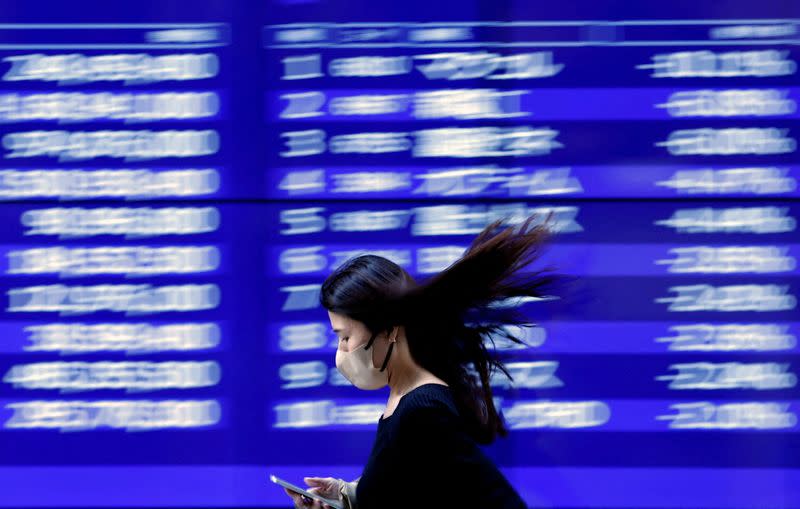Stocks rose on markets across Asian on Monday following news on the weekend that President Biden and House leader Kevin McCarthy had reached a deal to raise the US government’s $31.4-trillion debt ceiling.
The Nikkei share average in Tokyo surged to a new 33-year high, but stocks in China fell after data showed that profits at industrial firms have slumped.
The Nikkei index was helped by a weaker yen and gains for US stock futures as well as increased optimism about a debt ceiling deal.
ALSO SEE:
Thai Economy Recovering, But Clouds Linger Over Poll Outcome
The Nikkei rose by 1.03% to 31,234, for a ninth straight winning session, after earlier reaching 31,352.53 for the first time since August 1990.
The broader Topix was 0.7% higher at 2,160.65 after also marking a more than three-decade peak of 2,188.66.
Foreign investors have been the main driver of the Nikkei’s rally, drawn by the Tokyo Stock Exchange’s (TSE) push for better corporate governance and Warren Buffett’s increased investment in some Japanese trading companies.
“Foreign investors are really snapping up Japanese shares at the moment, so the trend higher for the Nikkei is likely to continue,” said Masahiro Ichikawa, chief market strategist at Sumitomo Mitsui DS Asset Management.
“At the same time, it’s really rallied a long way and there’s a strong sense of overheating, so the chance of a correction has become quite pronounced. Investors need to take care about that.”
The Nikkei has surged some 7.7% since May 10 to reach Tuesday’s high. By contrast, an index of global stocks is up around 0.9% over the same period.
Hang Seng Index, gold prices slip
Meanwhile, Hong Kong’s Hang Seng Index fell 1.04% on China’s weak industrial data and tech rivalry with the West, while the Shanghai Composite edged up by 0.28%.
Elsewhere, the ASX All Ordinaries was up 0.83% in Sydney, while markets in Bangkok and Kuala Lumpur edged up, and the BSE Sensex in Mumbai climbed by 0.55%.
European stock indexes slipped slightly on Monday, lacking momentum in thin trade while optimism about the US having reached a debt ceiling deal kept Wall Street futures positive.
Gold prices inched lower in thin trading on Monday as the debt ceiling agreement took worries off the market and weighed on safer assets, while chances of the Federal Reserve raising rates higher dampened the demand for bullion.
Spot gold inched 0.1% lower to $1,945.29 per ounce by 1013 GMT, hovering near two-month lows hit on Friday. US gold futures were also unchanged at $1,944.80.
The pull-back in safe-haven gold came as world stocks rallied on the news of a debt deal being finalised in Washington, although trade was subdued with parts of Europe, including Britain, and the United States on holiday.
“Until a couple of days ago, a majority of investors were betting that the Federal Reserve was remaining steady with rates and not raise them in the coming month,” said Carlo Alberto De Casa, external analyst at Kinesis Money.
Last week’s economic data changed that view, with the Fed now expected to raise rates in its June 13-14 meeting.
The Fed Fund futures showed a 65.6% chance of a 25-basis-point increase, with rates peaking in July at 5.317%.
- Reuters with additional reporting and editing by Jim Pollard
ALSO SEE:
China Industrial Profits Continue to Fall, Tank 18% in April
Patriotic Buyers Pump China Stocks Hit by US, Japan Sanctions
US, China Ministers Hold ‘Candid’ Talks on Trade Concerns
























